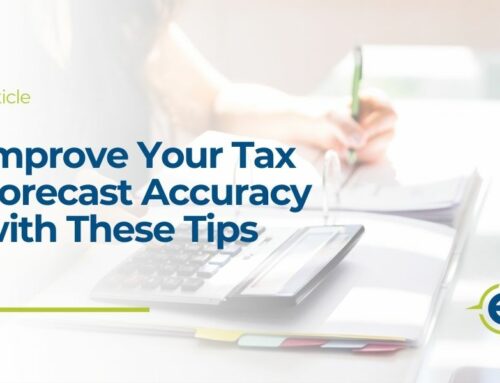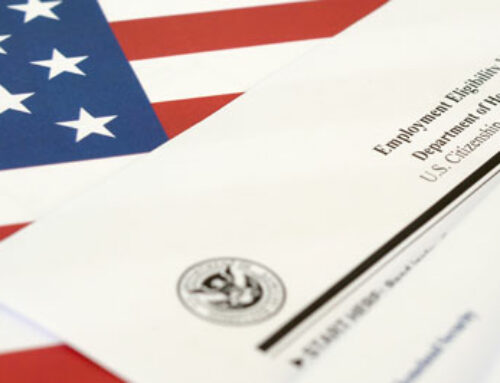Paycheck Protection Program Important Updates
Eligibility
The shortage of funding in the first round of the Paycheck Protection Program (PPP) has caused increased scrutiny over the funds. One area of concern has been organizations that received funds that were not intended to benefit from this program.
As part of the application process the applicant is required to certify that “Current economic uncertainty makes this loan request necessary to support the ongoing operations of the Applicant.” The risk of making an inaccurate certification includes criminal liability for fraud.
Recently, the Treasury issued the following statement in response to the heightened scrutiny:
“All borrowers must assess their economic need for a PPP loan under the standards established by the CARES Act and the PPP regulations at the time of the loan application. . . Specifically, before submitting a PPP application, all borrowers should review carefully the required certification that current economic uncertainty makes this loan request necessary to support the ongoing operations of the Applicant. Borrowers must make this certification in good faith, taking into account their current business activity and their ability to access other sources of liquidity sufficient to support their ongoing operations in a manner that is not significantly detrimental to the business. . . Any borrower that applied for a PPP loan prior to the issuance of this guidance and repays the loan in full by May 7, 2020 will be deemed by SBA to have made the required certification in good faith.”
Subsequently, Treasury Secretary Mnuchin said the SBA “will review all loans in excess of $2 million, in addition to other loans as appropriate.”
As of this writing, this is all the guidance we have on this topic and only adds to the myriad of uncertainties surrounding this program. This guidance is grossly insufficient to guide anyone to make a confident decision. The threats of criminal fraud charges, audits, and public humiliation make it even more daunting when they don’t provide any clear guidance on how to avoid those outcomes. We understand how frustrating this is and we share in that frustration, but given the lack of clear guidance, we cannot advise you as to whether you qualify for the program or not or whether or not you should return funds you have already received by May 7th. However, what we can tell you is to document as much as you can to support your need for this money due to the economic uncertainty. If your business operations are ongoing, also document why your access to other sources of liquidity is not sufficient to support the ongoing operations. This could include saving emails from customers cancelling or putting off projects that were scheduled, internal communication about actual or possible layoffs, other steps that have been taken to reduce expenses, communication with bankers about modifying or deferring loan payments, etc.
We would be happy to talk with you about your situation and help guide you with some documentation you may want to have. Ultimately, the decision to keep or return the PPP funds by May 7th is entirely yours. You may also want to consider consulting with your attorney to help you evaluate the legal risks.
Deductibility of Expenses
In another backdoor blow to small businesses, late last week the IRS released guidance that any expenses paid with PPP funds that are subsequently forgiven will not be deductible for federal tax purposes. As stated in the original bill, the forgiven PPP funds are also not considered taxable income. As such, the IRS’s position is that allowing the expenses paid with PPP funds to be deductible would create a “double tax benefit.” This effectively eliminated any benefit of deeming the funds to be non-taxable to begin with and is now the same result as making the forgiven funds taxable and allowing the expenses to be deducted as in the normal course of business. This is a very significant change that will result in substantially more taxable income and tax burdens for many small businesses.
It is possible that Congress could decide to override the IRS by passing a law that allows the deductions and this is something that we, along with many others, are advocating for and watching closely.
Bringing Back Employees on Unemployment
To end this with some better news . . .
Some employers are reporting that they have offered to hire back an employee on unemployment, but the employee declined the offer.
The Treasury issued guidance in favor of small businesses that says they “intend to issue an interim final rule excluding laid-off employees whom the borrower offered to rehire (for the same salary/wages and same number of hours) from the CARES Act’s loan forgiveness reduction calculation. The interim final rule will specify that, to qualify for this exception, the borrower must have made a good faith, written offer of rehire, and the employee’s rejection of that offer must be documented by the borrower. Employees and employers should be aware that employees who reject offers of re-employment may forfeit eligibility for continued unemployment compensation.”
If you are in this situation, make sure your offer is in writing and in compliance with the rules above and that you document the rejection.
We will continue to keep you informed of important updates to the PPP and other tax law changes as they become available to us. As of this writing, we are still waiting on the Treasury to issue detailed guidance on the forgiveness of PPP loans which was mandated under the law to be issued by April 26th. They missed that deadline with no indication of when, or even if, they may release anything. We are in contact with the Treasury and the SBA along with many other CPAs and the American Institute of Certified Public Accountants and are advocating to get that guidance sooner rather than later. As soon as that guidance becomes available, we will send out another update.
These are trying times with so much uncertainty all around us. We are here to help navigate the uncertainty and shed light where we can. Feel free to reach out to us with any questions. We will always be honest about what we know, what we don’t know, and what we think is the best course of action in the face of uncertain guidance.
Click here to access all of the articles from our Covid-19 Resources






